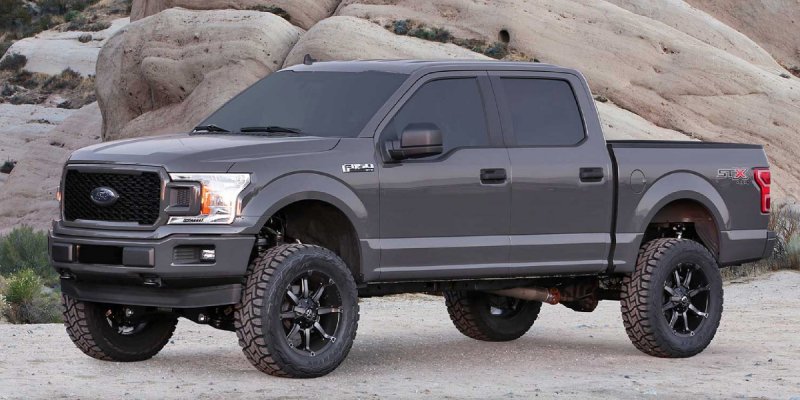
The allure of the pickup truck is undeniable. More than just a mode of transportation, for many, it’s a trusted companion, a tool of the trade, and a symbol of freedom and capability. This inherent versatility naturally invites customization. From enhancing performance and tackling rugged terrain to simply expressing personal style, the aftermarket world for trucks is a vibrant and ever-expanding ecosystem. However, this passion for modification often walks a precarious tightrope, balancing the desire for upgrades that are genuinely “must-have” with the very real risk of voiding the manufacturer's warranty. Understanding this dynamic is crucial for any truck owner looking to enhance their vehicle responsibly.
Let’s first address the “must-have” category. These are modifications that don't just offer aesthetic appeal but address fundamental aspects of a truck's functionality, often enhancing its core purpose. At the forefront of these are tire and suspension upgrades. For the off-road enthusiast or those who frequently navigate less-than-ideal surfaces, larger, more aggressive tires coupled with a lift kit or upgraded suspension components are almost a prerequisite. These aren't merely for looks; they increase ground clearance, improve traction in challenging conditions, and can absorb impacts that stock components might struggle with. A properly chosen suspension system can also improve on-road comfort, especially when carrying heavy loads. Similarly, upgraded braking systems can be considered essential for trucks that are regularly used for towing or hauling significant weight. Enhanced rotors, calipers, and brake pads provide superior stopping power and reduce the risk of brake fade, a critical safety consideration.
Beyond raw capability, some modifications focus on durability and protection. For those who utilize their trucks for work or adventure, a robust bed liner is an absolute necessity. Whether spray-in or drop-in, it shields the truck bed from scratches, dents, and rust caused by cargo, tools, and the elements. Similarly, aftermarket bumpers, particularly those designed for off-road use, offer superior protection against impacts, can accommodate winches or extra lighting, and often improve approach and departure angles. Skid plates are another vital layer of defense for trucks that venture off the beaten path, protecting vulnerable undercarriage components like the engine oil pan, transmission, and differentials from rocks and debris.
In the realm of performance, while not always strictly “necessary” for basic operation, certain engine and drivetrain enhancements can be considered desirable for those seeking to optimize their truck’s capabilities. This might include a cold air intake system, which can improve airflow to the engine, potentially leading to slight gains in horsepower and fuel efficiency. Exhaust system upgrades can also contribute to better engine breathing and a more aggressive, satisfying sound. For those frequently towing, a transmission cooler is a wise investment, helping to prevent overheating and extending the life of the transmission, especially under heavy loads.
However, the moment you begin exploring these desirable upgrades, the shadow of the warranty looms large. The Magnuson-Moss Warranty Act of 1975 in the United States (and similar legislation in other regions) provides consumers with protection, stipulating that a manufacturer cannot void a warranty simply because a part has been replaced or modified, unless they can prove that the aftermarket part or modification caused the defect in the first place. This is a critical distinction, but it’s also where the complexity and potential for conflict arise.
The danger lies in modifications that directly impact or interact with the vehicle's core systems – the powertrain, electronics, and safety features. Installing a performance chip or tuner that significantly alters engine parameters, for example, can easily lead to issues with the engine, transmission, or emissions control system. If the manufacturer can demonstrate that the tuner caused premature wear or failure in these components, they are well within their rights to deny warranty claims related to those specific issues, and potentially broader issues if the cause-and-effect is difficult to disentangle.
Similarly, suspension modifications that drastically change the vehicle's geometry or put excessive stress on other components can cause problems. A lift kit that is too high or improperly installed can lead to accelerated wear on CV joints, driveshafts, and steering components. If these parts fail and the manufacturer can link it to the modification, warranty coverage could be denied.
Electrical modifications, such as adding extensive auxiliary lighting systems or aftermarket stereo equipment that draws significant power, can also be problematic. Improper wiring can lead to shorts, blown fuses, or damage to the vehicle's electrical control modules (ECMs). If a problem arises with the ECM and the manufacturer can show it was due to an aftermarket electrical installation, warranty coverage for that module, and potentially other related electrical systems, could be revoked.
Even seemingly innocuous modifications can sometimes push the boundaries. For example, fitting oversized tires without recalibrating the speedometer and odometer can lead to inaccuracies. While this might not directly cause a mechanical failure, it can indirectly impact systems that rely on accurate speed data, potentially causing issues down the line. If a problem arises with, say, the anti-lock braking system (ABS) or electronic stability control (ESC), and the manufacturer can argue that the incorrect tire size contributed to its malfunction, warranty coverage could be affected.
The key to navigating this complex landscape lies in informed decision-making and judicious choices.
Firstly, research is paramount. Before purchasing any modification, thoroughly investigate its reputation, the manufacturer's track record, and specifically, how it might interact with your truck’s existing systems. Look for reputable brands that are known for quality and compatibility.
Secondly, professional installation is highly recommended, especially for more complex modifications. A qualified mechanic or specialist shop understands the intricacies of vehicle systems and can ensure that modifications are performed correctly, minimizing the risk of unintended consequences and potential warranty issues. A poorly installed lift kit or exhaust system is far more likely to cause problems than one installed by an expert.
Thirdly, understand your warranty. Familiarize yourself with the terms and conditions of your manufacturer’s warranty. Pay close attention to any clauses regarding modifications and aftermarket parts. If you are unsure about a specific modification, it is always best to consult with your dealership’s service department before undertaking the upgrade. While they may not always be advocates for aftermarket parts, they can provide valuable insights into potential warranty implications.
Fourthly, prioritize necessity and practicality. Distinguish between modifications that genuinely enhance your truck's utility or safety and those that are purely cosmetic. While a custom grille or fender flares might be appealing, they are less likely to jeopardize your powertrain warranty than a modified engine tune. Focus on upgrades that serve a practical purpose and align with how you actually use your truck.
Finally, maintain clear records. Keep all receipts for parts and installation services. In the unfortunate event of a warranty dispute, having meticulous documentation can be invaluable in proving that a modification was performed correctly or that an aftermarket part did not cause the failure.
In conclusion, the world of truck modifications offers an exciting avenue for owners to tailor their vehicles to their specific needs and desires. Essential upgrades like robust tires, improved braking, and protective bed liners can significantly enhance a truck’s capability and longevity. However, this pursuit of enhancement must be tempered with an understanding of warranty implications. By prioritizing research, professional installation, clear communication with dealerships, and a focus on practical enhancements, truck owners can enjoy the benefits of aftermarket modifications while minimizing the risk of voiding their valuable warranty. It’s a delicate balance, but one that can be navigated successfully with knowledge and a thoughtful approach.







0 Comments
Post Comment
You will need to Login or Register to comment on this post!